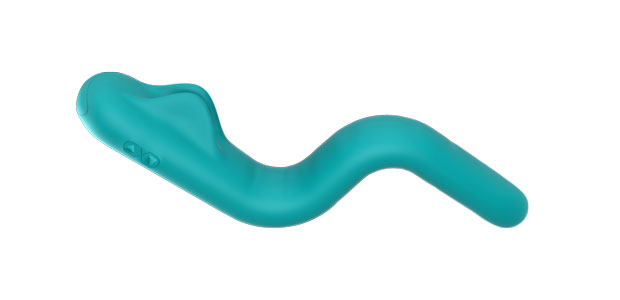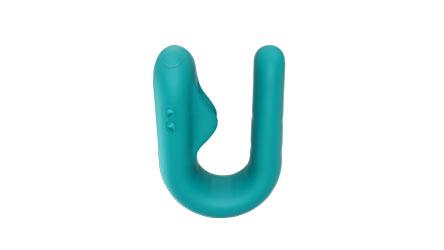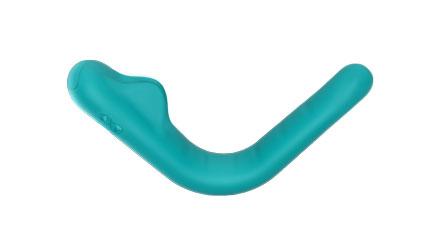
MysteryVibe: Sex Tech Taboo
Situated in the idyllic and typically English countryside village of Thursley in Surrey, you will find MysteryVibe Design HQ.
It was not where I expected the sex toy company to be located, though once inside the studio it looked like every other startup I had visited – it was white, bright and filled with computer screens – which conflicted with what my prior assumptions had been – of a darkly lit dungeon with ropes hanging from the ceiling. My assumptions neatly sum up the hurdles that MysteryVibe has faced – taboo.
SEX TECH TABOO
Even in 2018, sex is still taboo – and worse than any mention of sex, is that of female pleasure from sex – but this is where MysteryVibe has disrupted the market and capitalised on the conservative mindset of the past and the sexual liberation of the future.
In conversation with Rob Weekly, co-founder and CTO of MysteryVibe, he told us that securing investment for their product Crescendo has been difficult due to ‘morality clauses’. This extended not just to individuals and companies from which they sought financing, in the US especially, but also crowdfunding platforms which three years ago did not accept sex toys. Weekly explained that Crescendo had been met with excitement and enthusiasm from investors, but inevitably were turned down due to policy.
The co-founders invested initially in the prototype to get things off the ground and looked to affluent individuals for the next round of funding. Despite the conservative barriers they faced, their product’s viability outshone this for their ‘angel investors’. MysteryVibe has gone through five rounds of investment. They have so far raised £2.6m from investors to date, valuing the business at £8.6m.
Crescendo is available via Amazon, Fab.com, Brookstone, Lovehoney, Amsterdam Airport and soon JD.com, but it has been difficult for MysteryVibe to get distributors to take them seriously just because of the ‘sex’ label.
The four founders (Soumyadip Rakshit – CEO, Shanshan Xu – CFO, Rob Weekly – CTO and Stephanie Alys - CPO or Chief Pleasure Officer) had bounced their idea of disrupting the sex toy market with a bendable and connected product for a while before creating a prototype. Not only did the product raise challenges in convincing a consumer to invest in a personal pleasure product, but also mechanical challenges.
The USP of Crescendo is that it not only accepts, but embraces the fact that when it comes to pleasure devices it really is not a ‘one size fits all’ scenario. MysteryVibe created a product that is flexible to the varying shapes and sizes of its users – of all genders.
Most toys on the market have one to two motors in them - Crescendo has six. This allows more versatile stimulation – but meant that the product had to be engineered in such a way that there would be no mechanical stress to the motors when the product was bent. Weekly said that they found the solution in a flexible circuit board that allows the product to bend without compromising on connection.
The free MysteryVibe app available for Android and IOS allows users to remote control Crescendo, download new vibes and even create custom vibes themselves.
The future for Crescendo is to allow connection to the smart home, via the app, allowing the user to create a fully immersive experience by controlling lighting, temperature, music and TV to create the ultimate ambience to set the mood.
USER EXPERIENCE (UX) RESEARCH
Seymour Powell helped MysteryVibe with feasibility studies for the mechanical design and the overall branding of the product. For market research they worked with existing data from Durex. MysteryVibe ran workshops with groups of women to research everything from usability to colour tone and also requested feedback from the blogging community. Privacy and security were large considerations in the design of the product – MysteryVibe does not store any personal data.
MysteryVibe also worked with RPD International to get the product to market, by having it manufactured in China. This was the company’s path to production, and as a UK-based company, they utilised the experience of a company that knows the production processes in China.
When MysteryVibe launched Crescendo in TechCrunch New York they created a social media ThunderClap campaign. Their web server crashed due to a million hits, which whilst it was a drawback for the company, clearly showed existing demand and proof-of-market.
SEXUALLY CHARGED ‘QI’
MysteryVibe worked on the hardware and integrated firmware first and then the app development was outsourced to design partners Fueled (iOS) and Untitled Kingdom (Android). The tech specs are as follows: flexible circuit board, inductive charging coil, Lithium ion battery, driver stage for six motors, Bluetooth controller from Texas Instruments and IDT chipset.
The Qi charger that MysteryVibe developed proved so successful that they have launched it as a spin-off, licensing their design as another revenue stream.
WHEN ARE YOU NO LONGER A STARTUP?
“For me, and I expect my partners might disagree, it is when we are financially self-sustaining, and no longer need financial investment to survive,” said Weekly.
SUM IT ALL UP IN A SENTENCE
“I’ve never been a product idea sort of person, but I love bringing those ideas to fruition, especially in a mass market like we have, where you have to design with both cost and performance in mind,” Weekly summed up.




